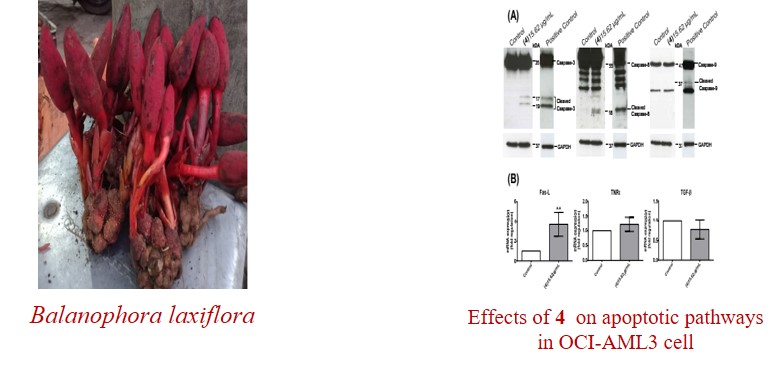JOURNAL 2117
Records of Natural Products
Year: 2022 Issue: 3 May-June
p.253 - 258
Viewed 3026 times.
-
Trinh Thi Thuy

-
Ba Thi Cham

-
Nguyen Thi Thuy Linh

-
Phan Thi Ngoc Bich

-
Sabrina Adorisio

-
Domenico Delfino

GRAPHICAL ABSTRACT

ABSTRACT
Four phenolic analogues isolated from Balanophora laxiflora; methylgallate (1, MG), 4-hydroxy-3-methoxycinnamaldehyde (2), 3-methoxycinnamic acid (3), and methyl caffeate (4, MC) were shown to have antiproliferative activity on acute myeloid leukemia (OCI-AML3) cells due to impaired cell cycle progression. Three of these compounds (1, 3, and 4) caused increased apoptosis and decreased proliferationin cells. Interestingly, MC (compound 4) significantly decreased the percentage of cells in S phase and G2/M phase, and significantly increased apoptosis in cells at low concentrations. Treatment with these compounds increased Fas ligand production and caspase-8/3, but not caspase-9-dependent, apoptosis. These results suggest that dosing with these compounds decreases proliferation and increases apoptosis in cell lines derived from hematological cancers.
KEYWORDS- Balanophora laxiflora hemsl. ex forbes & hemsl
- phenolic acid analogues
- antiproliferative activity
- caspase-8
- acute myeloid leukemia cell (OCI-AML)
- human cancer cell lines